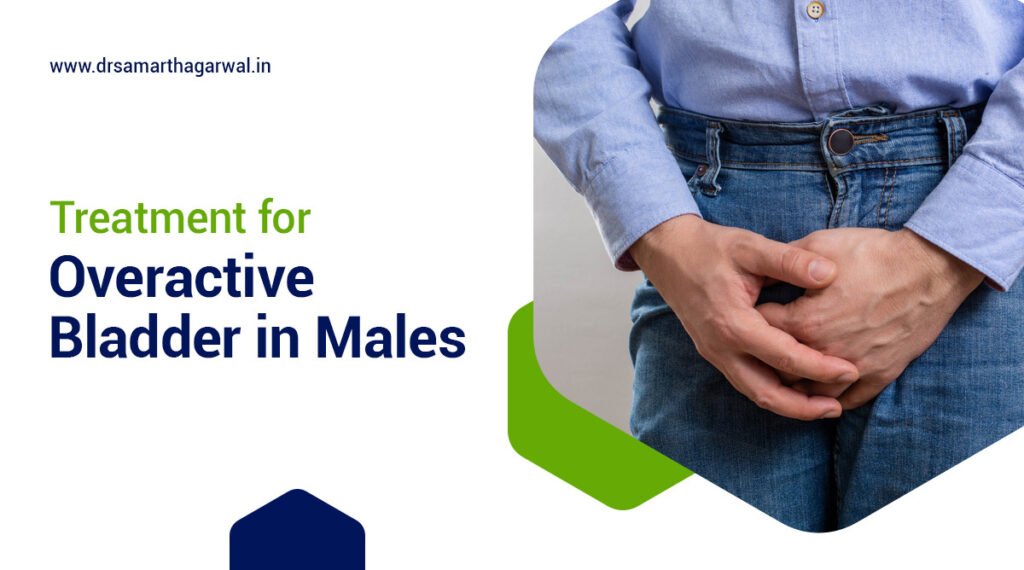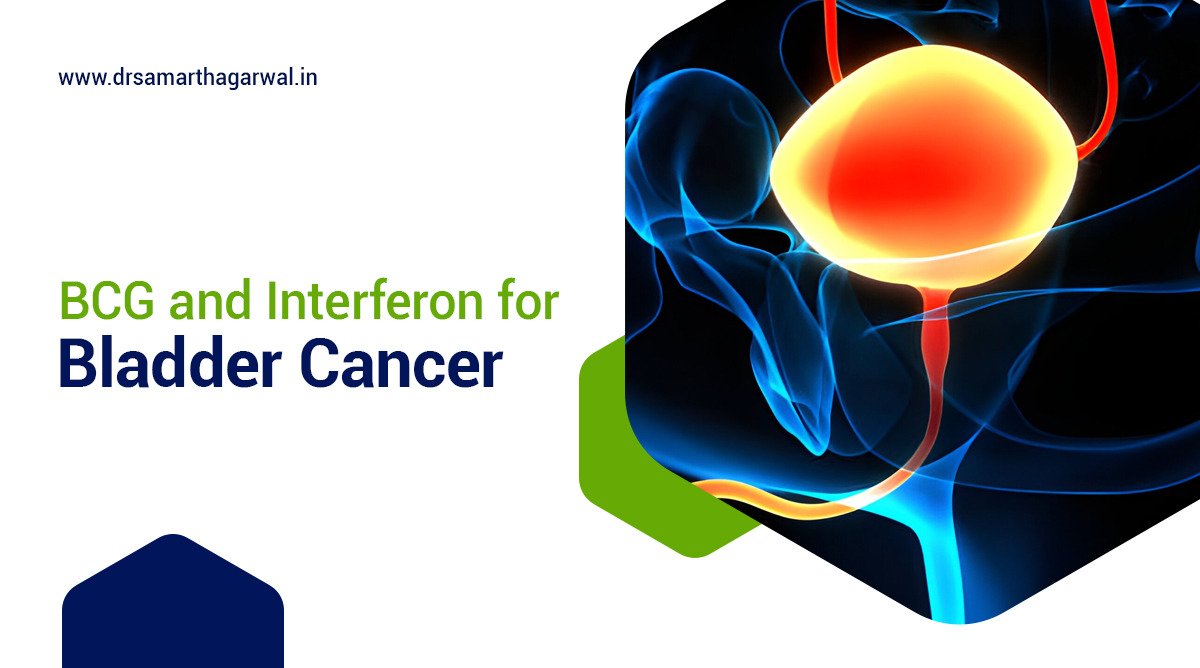BCG (Bacillus Calmette-Guérin) and interferon therapy is a treatment approach used to combat bladder cancer. This form of intravesical therapy involves instilling the BCG vaccine into the bladder to stimulate the immune system to fight cancer cells.
BCG is a type of vaccine that has been for many years to prevent tuberculosis, but it has also been found to be effective in treating bladder cancer. The symptoms of bladder cancer include blood in the urine, painful urination, and frequent urination. If left untreated, bladder cancer can lead to serious complications, such as metastasis to other organs and even death.
According to a 2015 research paper published by the National Institutes of Health (NIH), adding interferon to BCG is an effective therapy for both treatment and salvage therapy in patients with bladder cancer. Interferon is a type of protein that helps to stimulate the immune system to fight cancer cells. When used in combination with BCG, interferon has been shown to enhance the immune response and increase the effectiveness of treatment.
Furthermore, a 2019 paper published in Springer by J.J. Duplisea emphasized that the combination of interferon α and low dose B has markedly superior efficacy and lower toxicity than standard dose BCG therapy for high-risk non-muscle-in bladder cancer.
What is interferon for bladder cancer?
Interferon is a type of protein that mediates the host immune response in the human body. In the context of bladder cancer, interferon plays a significant role in inducing a non-specific cellular and humoral immune response towards tumor cells. This immune response helps in reducing the recurrence and progression rates of superficial bladder cancer.
The use of interferon in bladder cancer treatment is particularly appealing due to its minimal side effects and very low dropout rate compared to other treatment methods like BCG (Bacillus Calmette-Guerin). Current research has focused on the use of interferon in combination with immunotherapeutic and cytotoxic drugs to enhance its effectiveness.
Interferon-α, in particular, has been extensively studied and has shown promise in reducing the recurrence and progression rates of superficial bladder cancer. Its antitumor effect relies on T cells and macrophages within the tumor microenvironment. Interferon-α2B, a subtype of interferon-α, has been found to enhance Th1 cytokine responses in bladder cancer, which could potentially improve the efficacy of treatment.
In some cases, bladder cancer can become resistant to BCG treatment, making it an inherently resistant disease state. In such cases, interferon-based gene therapy has shown potential as an alternative treatment option.
However, it’s important to note that while interferon therapy holds promise, it is not a cure for bladder cancer and its effectiveness may vary from patient to patient. For optimal results, it is often used in combination with other treatments and in a risk-stratified clinical framework. As with any medical treatment, the decision to use interferon for bladder cancer should be made in consultation with a healthcare provider.
You might also like: Treatment for Overactive Bladder in Males

What are the side effects of BCG interferon treatment?
BCG interferon treatment for bladder cancer is associated with minimal side effects compared to BCG alone. Here are some of the reported side effects:
- Fever and Flu-like symptoms: Patients may experience fever, chills, and flu-like symptoms after treatment. These symptoms are usually mild and temporary.
- Bladder irritation: Patients may experience bladder irritation, such as a burning sensation during urination, frequent urination, or the urge to urinate immediately after filling the bladder.
- Allergic reactions: Some patients may have allergic reactions to BCG, such as hives, rash, or difficulty breathing.
- Blood in urine: BCG treatment may cause blood in the urine, which is usually temporary.
- Lower back pain: Some patients may experience lower back pain after treatment.
- Rare but serious side effects: In rare cases, BCG treatment can cause severe side effects such as sepsis, which is a life-threatening infection.
It’s important to note that these side effects may not occur in all patients, and the severity can vary. Patients should discuss any concerns with their healthcare provider.
In addition, the combination of BCG and interferon may enhance the immune response, potentially increasing the effectiveness of the treatment. However, more research is needed to fully understand the benefits and risks of this combination therapy.
How successful is BCG treatment for bladder cancer?
Depending on the bladder cancer, BCG can have a success rate of up to 83%.
According to a study “Immunoprophylactic intravesical application of bacillus Calmette-Guerin after transurethral resection of superficial bladder cancer.” published in Croat Med J in April 2003 by Dr. Librenjak et al, the long-term follow-up of intravesical bacillus Calmette-Guerin (BCG) therapy in superficial transitional cell carcinoma (TCC) of the bladder indicated a success rate of 79% in terms of disease progression-free survival and a 83% rate of overall survival. The median progression-free survival and overall survival times were 162 months and 209 months, respectively.
According to Jiang, Song, and Redelman-Sidi, Gil’s 2022 study ‘Bacillus Calmette-Guérin (BCG) Treatment Bladder Cancer’, Bacillus Calmette-Guérin (BCG) is the most successful microbial immunotherapy of cancer, and intravesical treatment withCG is recommended for most patients with high-risk-muscle invasive bladder cancer (NMIBC). In patients with NMIBC, treatment with BCG is associated with a reduced risk of bladder cancer recurrence.
Is there a better treatment for bladder cancer than BCG?
In certain cases, intravesical chemotherapy may serve as a better treatment option for bladder cancer when BCG (Bacillus Calmette-Guérin) treatment is ineffective or unavailable.
Gemcitabine, mitomycin, valrubicin, epirubicin, and docetaxel are commonly used drugs for intravesical chemotherapy. A study presented in March 2023 confirmed that the combination of gemcitabine and docetaxel, employed after surgery for high-risk non-muscle-invasive bladder cancer, is an effective and safer alternative to BCG (2022 National Cancer Institute publication).
For high-risk patients who fail BCG, radical cystectomy often stands as the recommended treatment (as per a 2015 article from the National Institutes of Health, NIH). However, several patients may be unfit or reluctant to undergo this procedure, necessitating alternative treatment plans.
Intravesical chemotherapy offers a viable approach in such situations, with specific drug combinations potentially delivering impressive results. It is crucial that healthcare providers carefully consider patients’ high-risk features when electing between BCG therapy and intravesical chemotherapy based on individual needs and responses to treatment.
You might also like: What Does a Urologist Do for Prostate Cancer?

What is the alternative to BCG treatment for bladder cancer?
There is a potential alternative to traditional BCG treatment in patients with bladder cancer that has shown promise in reducing the chances of recurrence and progression. One such alternative is the use of interferons, specifically interferon-α2B.
Intravesical interferon, when utilized in combination with immunotherapeutic and cytotoxic drugs, acts as a non-specific immunostimulatory agent toward tumor cells that can minimize side effects and achieve a very low dropout rate compared to the BCG treatment.
Moreover, current research has specifically focused on using interferon for patients with non-muscle-invasive bladder cancer to reduce the rates of recurrence and progressive disease. Interferon-α2B is recommended as an adjuvant therapy for intermediate-risk and high-risk NMIBC since it enhances Th1 (T-helper 1) immune-cell cytokine responses in a bladder environment, thus potentially facilitating improved outcomes. Some studies comparing BCG therapy with the interferon-alpha-2B approach have comparable recurrence rates.
However, it is important to note that the timing of treatment with interferons may impact the success; it has been suggested that the administration of salvage intravesical therapy should not be offered if a patient fails BCG induction therapy within six months. Salvage intravesical treatment with interferon can be considered alongside other treatments, such as chemotherapy or device-assisted therapy like intravesical immunostimulants, for suitable candidates who prefer bladder preservation or have severe underlying medical comorbidities. Furthermore, research on the implementation of interferon in bladder cancer treatment is still ongoing as there are no standardized criteria nor a set regimen established as of yet.
In cases where cancer progresses significantly, alternative treatment options (such as surgical procedures like radiotherapy and chemotherapy) may be presented by the medical team to ensure bladder cancer eradication along with appropriate patient follow-ups depending on the chosen treatment plan. Before making a decision, it is necessary to discuss treatment options with healthcare specialists and weigh the advantages and disadvantages comprehensively to ensure the best plan for each patient.
What is the survival rate for BCG therapy?
The survival rate of BCG therapy spans between 66% to 86%.
According to Pirzada, Muhammad T., et al.’s 2017 study “Non-Muscle-Invasive Bladder Cancer,” the survival rate for BCG induction therapy in high-risk bladder cancer patients at Shaukat Khanum Memorial Cancer Hospital & Research Centre in Pakistan was evaluated using a retrospective cohort study. The main outcome measures were the three-year disease-free survival and progression-free survival. The data included 68 high-risk (Ta and T1 with G3 or high-grade subtype) bladder cancer patients who underwent transurethral resection followed by six-weekly intravesical BCG instillation. The study found that the three-year disease-free survival rate was 66.2% and the progression-free survival rate was 86.8%. The study also noted that the tumor extent was the only factor significantly influencing disease-free survival independently. The results showed that induction BCG alone could be a viable option for high-risk non-muscle-invasive bladder cancer patients in terms of effective disease-free and progression-free survival rates.
According to a 2018 study published in Clinical Interventions in Urology by Bazarbashi S and a team from the Department of Urology at King Saud Medical City, the survival rate for BCG therapy in their patient population was compared with previously published data. The study included a review of medical records from patients diagnosed with nonmuscle invasive bladder cancer (NMIBC) and treated with transurethral resection (TUR) followed by intravesical BCG. The collected data revealed that at 5 years post-treatment, the relapse-free survival rate was 61.3% (95% confidence interval (CI) 44.2–78.4%). This was in line with the international data for similar treatments. The study titled “Intravesical Bacillus Calmette–Guerin (BCG) as Adjuvant Therapy of Non-Muscle-Invasive Bladder Cancer: A Five-Year Prospective Study” offered insights into the long-term effectiveness of BCG therapy for preventing the recurrence of NMIBC and highlighted the ongoing efforts to improve outcomes for patients who undergo this treatment.
How many rounds of BCG do you need for bladder cancer?
Patients with bladder cancer requiring intravesical BCG treatment typically undergo a course of weekly treatments for six weeks. The specific number of BCG instillations may vary depending on the healthcare provider’s recommendations and the patient’s response to treatment.
According to a review published in the Journal of Urology, the standard BCG treatment regimen consists of 6 weekly instillations. In cases where the response to treatment is inadequate, the course may be repeated. For high-risk non-muscle invasive bladder cancer, some clinicians may recommend maintenance therapy with BCG at longer intervals.
Furthermore, a study in the European Urology Oncology journal found that initiating BCG within 6 weeks of TURBT (transurethral resection of bladder tumor) was associated with a lower rate of cancer recurrence and progression.
In some instances, the number of BCG instillations may be reduced due to adverse effects or the patient’s overall health status. However, the primary goal is to achieve a sufficient therapeutic response to prevent or delay cancer recurrence.
What are the long-term side effects of BCG treatment?
Long-term side effects of BCG treatment for bladder cancer in the US often include lower urinary tract symptoms (LUTS). The most common LUTS associated with BCG treatment are frequency, urgency, nocturia, and dysuria (burning sensation while urinating).
BCG treatment acts by boosting the immune system, and thus it may provoke irritation in the bladder wall, leading to the symptoms mentioned. Notably, these side effects usually alleviate over time or can be controlled with medication.
Studies have shown that up to 90% of patients may experience some short-term side effects after undergoing BCG treatment for superficial bladder cancer. It is essential to recognize that the emergence of these side effects following BCG instillation reflects an active response by the immune system targeting the cancerous cells in the bladder.
When it comes to the combination of interferon and BCG treatment, the literature reveals that it significantly enhances Th1 cytokine responses in the bladder. Interferon α2b (IFN-α2b), administered in combination with BCG for bladder cancer treatment, can raise the chance of developing granuloma formation, which is a fibrotic, chronic response in the bladder tissue caused by the immune response triggered by BCG treatment [4, 5]. If these granulomas grow or extend deeper into the bladder wall over time, they might potentially impede normal bladder functioning and cause LUTS.
In cases where these symptoms persist for a longer period or become intolerable, patients may be candidates for various management strategies such as different dosing regimens or the addition of alternative therapies to control the symptoms. Regular follow-ups with healthcare professionals are essential in monitoring the progression and resolution of side effects to optimize treatment management
You might also like: Neurogenic Bladder Causes, Symptoms, Management

What is the most common complication of BCG?
The most common complication of BCG (Bacillus Calmette-Guérin) treatment for bladder cancer in the United States is a disseminated infection, which can range from infection of an organ to severe sepsis. Other systemic adverse events include malaise, fever, and lung infection.
BCG treatment involves the administration of immunotherapy drugs directly into the bladder through a catheter. This treatment is the most effective for early-stage bladder cancer, particularly high-risk non-muscle invasive bladder cancer (NMIBC). The treatment targets cancer cells inside the bladder without affecting the rest of the body.
Intravesical BCG acts as an immune modulator, eliciting a TH1-type response in the bladder. However, it can lead to complications such as fever, lung infection, and in rare cases, disseminated infection. Disseminated infection is the most serious complication and can lead to severe sepsis.
The likelihood of developing a disseminated infection increases with the number of BCG treatments. The risk is approximately 8% for all patients receiving BCG treatment. The most common organs affected by disseminated infection are the lungs, followed by the liver, bones, and soft tissues.
In some cases, aggressive bladder cancer can develop after BCG treatment. If this happens, cystectomy (surgery to remove the bladder) is usually recommended.
To minimize the risk of complications, it is essential to follow the healthcare provider’s guidelines before and after BCG treatment. These guidelines may include avoiding caffeinated beverages and diuretics for a certain period before the treatment and monitoring for side effects such as fever and signs of infection.
What is next if BCG treatments don’t work?
According to Zlotta, Alexandre R., et al.’s 2009 study ‘Management of BCG failures in non-muscle-invasive bladder cancer’, up to 40% of patients with non-muscle-invasive bladder cancer (NMIBC) will fail intravesical BCG therapy. The choice of an appropriate course of action following the failure of intravesical bacillus Calmette-Guérin (BCG) treatment is a controversial management issue for both patients with NMIBC and their physicians.

Contact Dr. Samarth Agarwal if you have any questions or concerns about your bladder cancer treatment.




